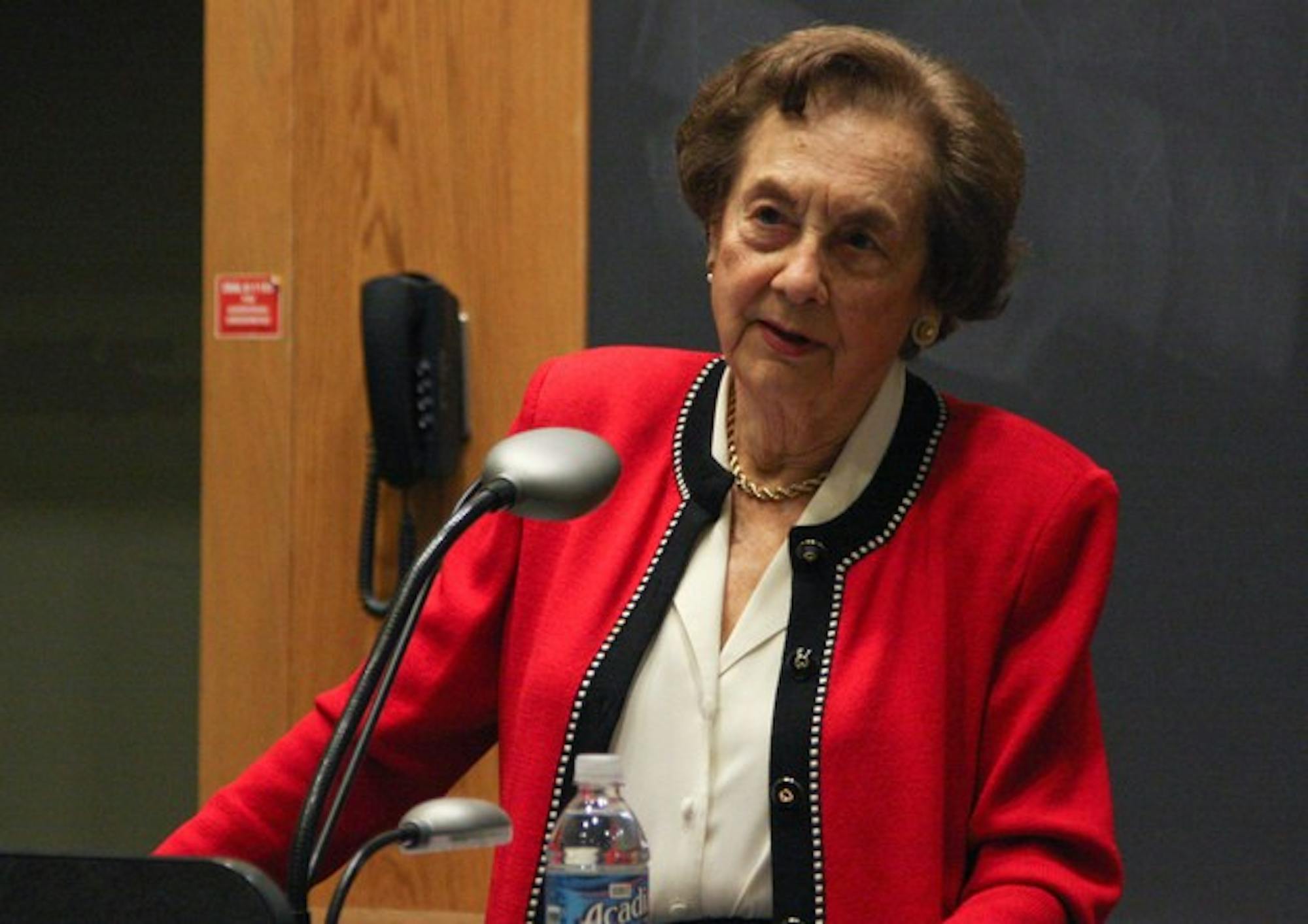Eisenberg urged both medical and undergraduate students to get involved with PHR -- which promotes the universal right to health care using advocacy, health training and public policy -- through the organization's chapter at DMS.
"Please join us in this struggle that goes on, and I'm afraid, will go on, not only abroad, but here as well," Eisenberg said. "It's our future."
Eisenberg shared stories of her experiences with the organization, combatting human rights violations in regions torn apart by conflict. On her first "fact-finding" mission to observe civil liberties violations in El Salvador in the 1980s, Eisenberg recalled hearing machine guns throughout the night as she lay in her hotel room.
"I was scared for my life," Eisenberg said. "I was thinking, those are innocent people being killed."
On a trip to Chile during the authoritarian reign of Augusto Pinochet, Eisenberg said she witnessed a student doused in kerosene and engulfed in flames. Eisenberg praised the Chilean medical students who risked their lives to aid PHR workers.
"Under dictatorships, it's very hard for human rights agencies to operate," Eisenberg said, adding that a Chilean medical student working with PHR disappeared without explanation.
Despite these dangers and initial doubts regarding the effectiveness of her work, Eisenberg said she ultimately found her experiences gratifying.
"I thought, 'What could I do, one person in a system of police and corruption?'" Eisenberg said. "But every time when we came back, I felt like we had done something."
The personal stories and international scope of PHR's work inspired students who attended the presentation.
"In medical school, it's really easy to be really focused on yourself," Alyssa Curtis, a second-year DMS student, said. "You lose sight of what's going on in the world."
Current PHR campaigns seek to help people whose lives and civil liberties are at risk. In the past six months, the PHR Asylum Network brought 46 victims of physical and psychological torture cases to the United States, Eisenberg said.
In addition, PHR's Colleagues at Risk program supports physicians practicing under repressive governments or in impoverished countries, according to Eisenberg.
The organization is currently working to free two Iranian doctors imprisoned for advocating for patients with AIDS and has four workers in Chad investigating torture by the Janjaweed and Sudanese forces.
As PHR's human rights work continues to expand worldwide, the organization recognizes the need to recruit volunteers on college campuses to carry on its mission, according to Eisenberg.
"I am getting to be too old to take those trips," Eisenberg said. "Younger people have to get involved because the five of us who started this are middle-aged or old people."
PHR chapter president Katie Ratzan, a fourth-year medical student, encouraged students of all disciplines to join the organization.
"It is definitely not just for medical students," Ratzan said. "It's for anyone who has an interest in human rights."
DMS's chapter of PHR has focused on health advocacy and raising awareness of human rights atrocities, Ratzan said. The chapter hosted a symposium on military torture and medicine last year, and PHR members plan to attend a national student conference at Brown University in January and sponsor monthly global health-related events, according to Ratzan.




